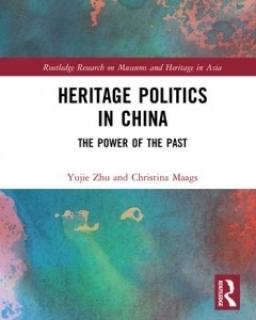
Abstract
Heritage Politics in China: The Power of the Past studies the impact of heritage policies and discourses on the Chinese state and Chinese society. It sheds light on the way Chinese heritage policies have transformed the narratives and cultural practices of the past to serve the interests of the present.
As well as reinforcing a collective social identity, heritage in China has served as an instrument of governance and regulation at home and a tool to generate soft power abroad. Drawing on a critical analysis of heritage policies and laws, empirical case studies and interviews with policymakers, practitioners, and local communities, the authors off er a comprehensive perspective on the role that cultural heritage plays in Chinese politics and policy. They argue that heritage-making appropriates international, national, and local values, thereby transforming it into a public good suitable for commercial exploitation. By framing heritage as a site of cooperation, contestation, and negotiation, this book contributes to our understanding of the complex nature of heritage in the rapidly shifting landscape of contemporary China.
Heritage Politics in China: The Power of the Past is essential reading for academics, researchers and students in the fi elds of heritage studies, cultural studies, Asian studies, anthropology, tourism and politics.
Reviews
This very timely book opens doors to heritage making as a political process. With a focus on China and local political processes, it will reorient and illuminate the way in which heritage theorists regard the value of heritage.
Prof Michael Rowlands. University College London